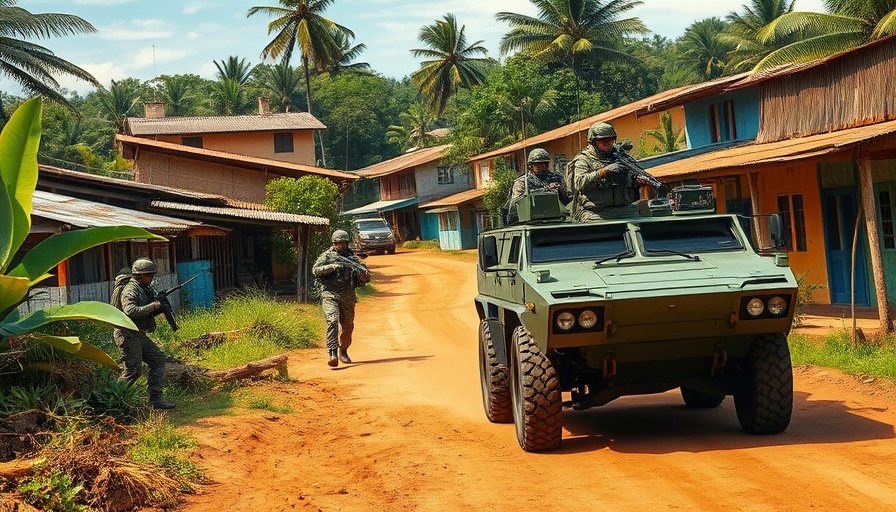
Maputo's Financial Dilemma: A Looming Threat to Oil Investments
The recent news that the Mozambican government has failed to meet payment obligations to Rwanda for its military assistance in combating insurgency, particularly in the Cabo Delgado province, raises critical concerns among major oil companies such as TotalEnergies and ExxonMobil. With Cabo Delgado's rich gas resources attracting significant foreign investment, delayed payments could destabilize operations at a time when security is paramount.
Understanding Cabo Delgado's Security Landscape
The Cabo Delgado province has become an epicenter of both economic promise and security challenges. Since the emergence of armed insurgencies in the region, which still lack a clear definition, oil companies have relied heavily on the security provided by foreign troops, including those from Rwanda. TotalEnergies and ExxonMobil perceive this partnership as vital to sustaining production and safeguarding their interests. The failure of Maputo to honor its financial commitments not only jeopardizes military support but also destabilizes the operational viability in this lucrative area, making it a hotspot of both economic growth and conflict.
Impacts on Foreign Investment and Local Governance
This financial turmoil is reflective of broader governance challenges within Mozambique, where corruption and mismanagement have stymied development efforts. Investors are keenly aware that such issues present a significant risk when evaluating the opportunities within Africa. As Mozambique strives for economic growth alongside its commitments to democratic governance, this incident serves as a reminder of the fragile nature of such aspirations amidst ongoing threats of insurgency and corruption.
Regional Implications: A Call for International Attention
Maputo's inability to manage financial obligations effectively has implications that extend beyond its borders. As foreign companies navigate the complexities of operating in Cabo Delgado, regional bodies such as the African Union (AU) and the Southern African Development Community (SADC) have key roles to play. The situation warrants enhanced support for ensuring security while addressing the root causes of conflict, which include poverty and unemployment. As oil majors grapple with both investment decisions and operational continuity, regional stability becomes paramount for fostering economic partnerships.
Future Predictions: Navigating a Complex Landscape
Looking toward the future, the trends suggest that Mozambique's energy sector will need to adapt to fluctuating political dynamics and security environments. Investors must reassess risk factors associated with operating in Cabo Delgado, indicating a potential shift towards more stringent evaluations of governance and security in sub-Saharan Africa. As international summits and discussions continue regarding decolonization and Afrocentrism within the energy sector, Mozambique's situation may become a case study spotlighting the intersection of economic growth, security, and governance in Africa.
Opportunities for Civic Engagement and Reform
This predicament presents an opportunity for civil society and activists to advocate for reforms aimed at combatting corruption and improving governance in Mozambique. The involvement of local citizens and organizations can bring about significant change and promote accountability at leadership levels. In fostering a more transparent governance structure, Mozambique could better navigate its security challenges while ensuring that developmental aspirations lead to real improvements in living conditions.
Conclusion: A Call to Action for Stakeholders
The unfolding situation in Mozambique emphasizes the need for stakeholders at all levels, both local and international, to advocate for policies that enhance governance and security. Addressing issues of corruption within the Mozambican government could not only stabilize the situation but also incentivize foreign investment in a region ripe with economic potential. As professionals observing these changes, we must engage with the complexities of governance and its impact on development, inviting dialogue and action towards sustainable solutions.
 Add Row
Add Row  Add
Add 




Write A Comment